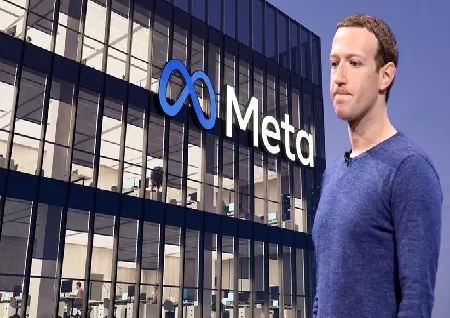Facebook Meta terminates over 11,000 employees

The parent company of Facebook, Instagram, and WhatsApp cut 13 percent of its workforce and prolonged a hiring freeze until the first quarter of next year.
Meta's CEO, Mark Zuckerberg, met with executives on Tuesday to discuss the layoffs.
Since Mark Zuckerberg established Facebook in 2004, the Silicon Valley firm has gradually increased its workforce. At the end of September, it had accumulated its largest-ever workforce of 87,314 individuals.
However, on Wednesday, the company—now known as Meta—began drastically reducing its workforce.
Meta announced the layoff of around 11,000 employees, or roughly 13% of its workforce, in what the business described as its most substantial employment reduction. The cutbacks were spread across departments and locations, with recruiting and business teams being hit the hardest. Engineers working on projects connected to the metaverse, the immersive online environment on which Mr. Zuckerberg has bet large, were among the divisions that were not trimmed as sharply, according to two individuals with knowledge of the subject.
"I want to accept responsibility for these decisions and how we arrived here," Mr. Zuckerberg, 38, said in a letter to workers. "I realise this is difficult for everyone, and I'm very sorry for those who have been affected."
The layoffs—nearly triple the number eliminated by Twitter last week, though not by as much—represent a startling turn of events for a formerly high-flying corporation whose ambition and potential for expansion looked endless. Meta has spent lavishly over the years, acquiring users, purchasing firms like as Instagram and WhatsApp, and lavishing amazing incentives on its workers. Even scrutiny of its data privacy practises and poisonous content on its applications had little effect on its financial success, as its stock continued to rise and revenues surged. Meta was valued at $1 trillion at one time last year.
However, the company has suffered financially this year as it tries to break into a new market — the immersive world of the so-called metaverse — while contending with a worldwide economic recession and a fall in digital advertising, its key source of revenue. New rivals arose to target a younger audience, such as TikTok, while Meta's services lost their lustre. Meta reported a 50% drop in quarterly earnings and its second consecutive sales decrease last month, despite a 19% increase in spending. This year, its stock has plunged about 70%.
Mr. Zuckerberg explained the reduction on Wednesday as a result of growing too rapidly during the epidemic, when an increase in online commerce led to a significant increase in income. He stated that he assumed the move would be permanent, prompting him to considerably boost his expenditures. At the end of September, Meta had 28 percent more staff than the previous year.
"Unfortunately, this did not go as planned," Mr. Zuckerberg stated. "I made a mistake, and I accept responsibility."
Related queries to this article
- meta
- terminates
- over
- 11
- 000
- employees
Read more articles and stories on InstaSity Latest News.


